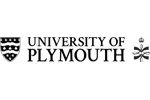

| The award | How you will study | Study duration | Course start | Domestic course fees | International course fees |
|---|---|---|---|---|---|
| MRes | - | - | - | - | - |
Below are some suggested courses at other providers that you may also be interested in:
Music & Sound Design for Visual Media BA (Hons), Cert HE
Catalyst - Institute for Creative Arts and Technology
Find out moreIf you do not meet the entry requirements for this course then consider one of these postgraduate preparation courses from another institution:
Graduate Diploma of Engineering (Civil: Structural)
Engineering Institute of Technology
Find out moreThere are 240 other courses listed from University of Plymouth. A selection of these are displayed below:
Join the Сưłć´«Ă˝ email list and never miss a chance to turn your study abroad dreams into reality!

Find out more about studying in the United Kingdom